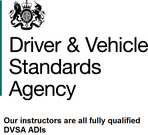
By 2030 the U.K. plans to ban the sale of petrol and diesel cars.
The less pollution a vehicle emits the better the air we breathe and as they say, “your health is your wealth.”
Unfortunately at the present time the reality of purchasing an electric vehicle brings with it its own set of problems.
Pricing
If a driving instructor wanted to buy a new electric Vauxhall Corsa as his or her training vehicle the current Vauxhall dealer cost is around £25,000.
The equivalent non electric version is around £15,000.
A difference of £10,000 extra over 3 years of finance even without interest adds £277 a month to your overheads.
This is an astronomical amount of extra money to pay each month!
Licence options
Most electric vehicles do not have a clutch.
Once you had passed your driving test in an electric vehicle you would be classed as having passed an automatic driving test.
If you wanted to drive a manual vehicle you would need to undertake a further test.
Time to recharge
At the present time you probably take 5 to 10 minutes to fill your fuel tank at the petrol station.
According to Auto Car a Nissan Leaf with a 40kW battery can be fully recharged in about six hours from a home wallbox fast charger.
What happens if you live in an apartment or have no driveway do you wait at an electric charging point in the street for a few hours?
This is too long.
Vehicle range
The current electric Vauxhall Corsa has a range of around 205 miles.
If you went on a long distance Motorway journey longer than 200 miles you would need to stop and recharge somewhere along the route.
The equivalent non electric Vauxhall Corsa would be able to travel double that distance without needing to refuel.
The actual ban on petrol and diesel cars
Currently the 2030 ban on the sale of petrol and diesel cars does not prevent exiting petrol and diesel vehicles from being on the road after 2030, or the sale of second hand petrol or diesel vehicles.
So presumably you would still have at least a further decade of people using their existing petrol and diesel vehicles.
Conclusion
The idea of switching to electric only cars to reduce emissions and improve air quality is very beneficial to human health.
At the moment the switch over is still in its infancy.
For a wholesale switch over:
- The price of electric vehicles needs to be greatly reduced.
- The time it takes to charge your electric vehicle fully needs to be greatly reduced.
- Charging points need to be as available and accessible as the current range of petrol stations.
- Electric vehicles need a longer range from their battery charge.
- Maybe by 2030 all of these objectives will have been reached?
- The current happy medium is to purchase a vehicle with a small engine that has low emissions.






